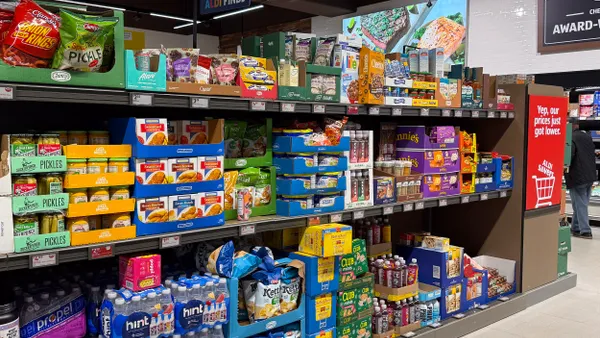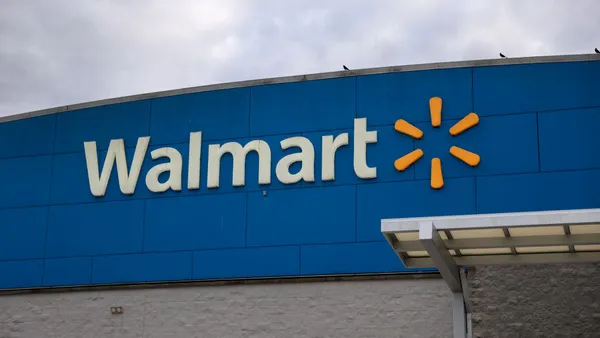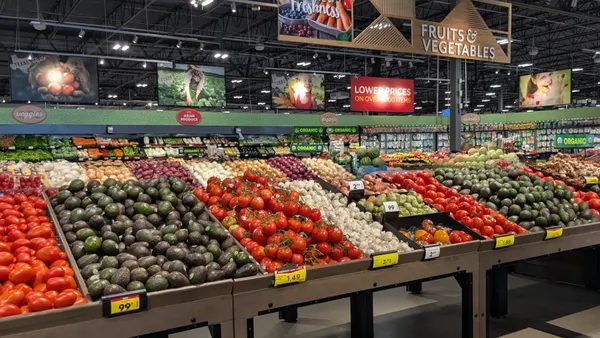Dive Brief:
- Following a successful pilot in Detroit, Meijer and food waste app Flashfood will offer steep discounts on food nearing its sell-by date at all 246 stores, according to a press release.
- The program allows customers to purchase meat, produce, deli, seafood and bakery products nearing their sell-by-date for a discount of up to 50%. Customers open the Flashfood app, choose Meijer as their store, choose the items they want and pay directly on the app. They can then go into the store and pick up their items at customer service.
- The retailer began testing the program in 2019 at four stores and has cut down on in-store food waste by 10%.
Dive Insight:
Meijer's pilot began in fall 2019 and saw more than 1,000 shoppers use the Flashfood app to purchase products that would have otherwise been diverted. The quick turnaround from test to chain-wide implementation indicates the retailer saw a meaningful sales lift in addition to waste reduction.
"In just a few months, we diverted thousands of pounds of food from landfills," Don Sanderson, group vice president of fresh for Meijer said in a statement.
Flashfood's buying process will be familiar to anyone who has used a click-and-collect service. Shoppers order products through the app, then pick up their selections at a Meijer customer service counter, where items are stored in coolers and racks.
Meijer has taken other steps to reduce waste across its supply chain. The company turns the waste from its dairy facilities in Tipp City, Ohio and Holland, Michigan into animal feed. Fresh food byproducts from its Middlebury, Indiana and Lansing, Michigan facilities are turned into compost.
Addressing food waste has become a priority for retailers. In August, Kroger reported it had reduced food waste by 9% last year through its Zero Hunger Zero Waste initiative. The multi-million dollar effort expects to reach zero food waste by 2025. Flashfood currently has a pilot with Hy-Vee and has integrated with Canadian grocer Loblaw at more than 250 locations.
Grocers incur about $18.2 billion in losses due to products hitting their sell-by date, according to Refed, a nonprofit organization dedicated to fighting food waste in the U.S.










